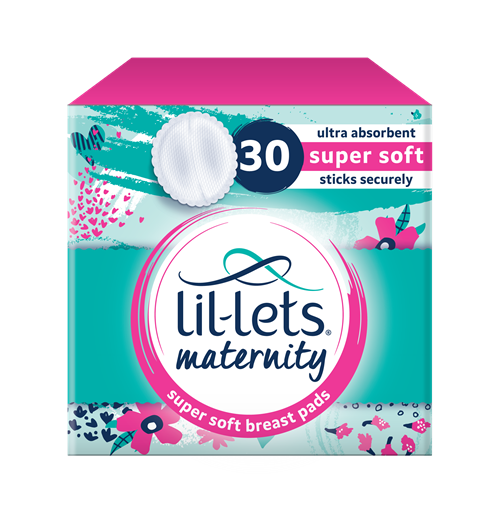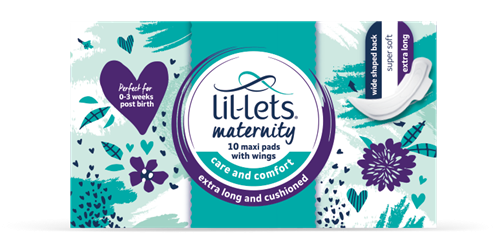Discover what products and services you may need in those first few month, following childbirth
Let's chat about how to plan for your fourth trimester: the 12-week period after childbirth. We’ll look at everything you need to consider, from what products to stock up on, to what services are available to you as a new mother. We'll also look at how to how to set up your support structure and plan your days in that early postpartum period.
Modern parenthood requires us to be more prepared. Gone are the days where there is a ‘village’ of support for new parents, specifically new mothers.
Think of this as your go-to guide, your road map on how to transition into this new phase of life with your mind, body and spirit intact.
If you’re reading this you’re most likely have a precious bundle of joy and. You’ve probably got all the baby gear – cot, pram, baby grows, and all the other paraphernalia that you’ve been told your baby needs. But what about what you need, mamma? What are some of the products and services available to you that will help you adjust to this new normal of becoming a mother?
Newborn babies really need very little to survive. It’s really just you and your partner that they need in those first few months postpartum. You, on the other hand, may be going through the a ,lot; leaking breasts, postpartum vaginal bleeding, cracked nipples, a sore abdomen, and immense sleep deprivation.
Let's explore practical ways to approach your postpartum plan. Granted, every family is unique and will have different circumstances based on who is available to help out and what each family members’ individual routines demand of them, but this is a basic guideline to help you get the most support during this time.
Gone are the days when women and birthing people had a village around them to look after them so they could look after their babies.
Nowadays, many of us live in nuclear households and far away from our extended families who would typically be the ones we rely on for this kind of support. We therefore have to be more strategic in setting up our support structure to help us through this time.


Now that your support group know their roles and what is expected of them, here are some tips to start putting your postpartum plan in place.
Whilst the first few weeks of having a new baby is difficult to implement any structure or routine (this is only really viable once their feeding routine has been established, which could take up to two months), starting with a bath and bedtime routine as early as possible is recommended. Same time, same order of events. Babies learn from early on how to formulate sleep associations, despite how sporadic their sleep patterns are. It helps to regulate their circadian rhythms, which is a complex process that encourages melatonin production (the sleep hormone). A warm bath with dim lighting at roughly the same time each day, and keeping the sleep environment warm and dark, is a good start.
Bathing your Baby - How to clean your newborn Bonding With Your Newborn Baby
We've put together a list of useful products to have after giving birth.
Once your milk comes in on day 3-5 post-birth, your breasts may feel like they don’t belong to you anymore. They’ve now turned into milk-making machines and as a result you won’t have any control over them - their changing size, weight and what comes out of them. They will leak, and to help ease this and catch the off flow is Lil-Lets Maternity Breast Pads. Simply place them inside your bra covering your nipple and you’re good to go.
SmartFit™ Lil-Lets Maternity Breast Pads
While you get into a flow with breastfeeding, your nipples are going to feel raw and sensitive for a while. The best thing you can do to keep them in tip-top shape is to apply nipple cream after every feed. There are a host of different types of nipple creams but one pantry ingredient that works well too is coconut oil.
Hands down an essential for new moms, especially those with larger breasts who feel like they need the support but could do without the hassle of undressing when wearing a regular bra. All major retailers sell them and they work by having an additional piece of fabric over the breast, which you unclip from the strap to expose your nipple to be able to feed your baby.
If you’re breastfeeding it’s advised to wait until six weeks postpartum before you start getting into a pumping routine. Until then, to catch the overflow of milk from each breast while you feed your baby (because you want to save every last drop of this golden elixir) is a brilliant silicone manual breast pump called a Haaka. Simply place it on the breast your baby is not feeding from to catch the overflow. Leave it at room temperature and then freeze it to start building up a stash of milk.
Maternity pads are essential for any expecting mom to have ready and packed in her hospital bag. Lil-Lets Maternity Maxi Pads are designed to keep you feeling comfortable in the postpartum period as your body expels lochia (post-birth blood).
SmartFit™ Maternity Maxi Pads With Wings
As part of your self-care routine, lathering your skin and giving yourself a gentle massage after a bath (or getting your partner to) is a simple way to help energise yourself. Massage is a great way to move lymph around the body and to get rid of excess fluid as a result of pregnancy, especially as it is not recommended to be exercising much during the fourth trimester because you need to be resting as much as possible. Body oil or any substitute like coconut, olive, grapeseed or sesame oil not only moisturises your skin but also helps keep you warm, especially now that winter is here. Warmth is very important in the early postpartum phase as it helps with blood circulation and heals your body post-birth.
There are a host of different types of lactation supplements out there, from vitamins and herbs to teas and even certain foods that can help keep your milk supply up. Carmien Nursing tea, Mrs Milk Bars and Granola (with oats as the base) are all great options. Oats is known as a galactagogue and is found in many recipes across the world to promote lactation. A wholesome bowl of oats for breakfast is a great way to start the day to give your breasts the energy they need to make milk. There are various oral supplements you can take too, but it's advised to always check with your healthcare provider before taking them.
For the C-Section moms, micropore is your best friend to help your scar heal. Leave it on for up to five days before changing and you can bath, shower and wash with it too.
This is a godsend for those who had a vaginal birth and experienced tearing or had to have an episiotomy during delivery. It’s a squirt bottle designed with the long spout angled at a curve so that when you squeeze it, the contents of the bottle (warm water) spray onto your perineum (the area of tissue between your vagina and anus). A peribottle is a handy tool to help clean this part of your body with as little mess and fuss as possible, and the warm liquid can provide relief. You use it every time you need the toilet in those first few days/ weeks postpartum by filling it up with warm water and when you sit on the toilet you hold it upright underneath you and squeeze it. The liquid cleans your tear, stitches and episiotomy site.
Once you’ve cleaned your perineum area, a perineum spray to help soothe inflammation and help your wound heal is a great idea. Most of these sprays contain witch hazel water. Witch hazel is a plant that’s been used for centuries to get rid of bacteria and reduce inflammation.
A sitz bath is basically a type of Epsom salt bath. There are certain products on the market that use Epsom salts as the main ingredient in their Sitz bath formulations but combine with other herbs and oils to assist in relaxation and healing. Epsom salts are a great source of magnesium, which has a deep relaxation effect. It is more effective than taking magnesium supplements orally because your skin absorbs magnesium much more efficiently.
Whether you’ve had a vaginal or C-Section birth, going to the toilet can be painful. A stool softener can help alleviate the discomfort by softening the stool so it’s easier to eliminate. If you’d prefer to go the more natural route then soaking dried prunes in Rooibos tea and eating them is a tried and tested way to soften stool and relieve constipation. Don’t forget to drink lots of water.

Modern parenthood requires that we be a lot more vigilant and prepared for the fourth trimester. In this section we look at some babysitters or nannies that could provide a second layer of support outside of your immediate structure of family and friends. Many of these are only called on if and when you need them but while you’re planning, it’s a good idea to at least find out who or which of these are available to you. They do all cost money so a great tip is to think about incorporating them into your baby shower registry or rather your parenting shower one. Newborns need so little and often you’ll find many who have already had kids will be willing to loan or gift you baby essentials like clothing, bottles, a baby bath or blankets. Rather ask your friends and family to contribute financially to a service provider rather than to items for your baby.
Bodywork is a broad term to refer to any practitioners or modalities that work on the postpartum body. This can include anything from Chiropracting, Physiotherapy, Osteopathy, massage or any other treatment that can relax your body or get you into alignment. Birth is like running a marathon, our muscles, joints, ligaments and connective tissue are put under immense pressure to birth our babies, even if it is by Caesarean – carrying a heavy weight for 9 months can take its toll too. It's advised to not be active in the postpartum period and to focus on rest. Yet movement is how we drain excess fluid and lymph and why getting a session with a physio, masseuse or chiro can be so beneficial in our recovery.
You get many different types of doulas, most notably, birth and postpartum doulas. Doulas are advocates for the mother and her partner during birth and the fourth trimester. They offer emotional, physical and informational support. Although they are not medically trained, they have very up to date knowledge on medical interventions when it comes to childbirth and recovery from birth and can point you in the direction of medical professionals if a situation arises. Research shows that having a birth doula for your birth drastically improves your overall birth experience and the prevention of birth trauma. Postpartum doulas are becoming way more popular as an intervention and preventative strategy for perinatal mental health disorders. The rates for hiring a doula vary anywhere between R5 000 to R10 000, depending on your needs.
For many women, their gynaecologist is the only consistent healthcare practitioner they see for the duration of their pregnancy. However, after birth it’s only recommended to see your gynae once as a general check up to see how you are recovering. This is anywhere between 2 to 6 weeks postpartum. If you are experiencing any difficulties, don’t be afraid to reach out to your gynae. Before your appointment make a list of questions to discuss, nothing is off limits.
One of the biggest challenges postpartum women face is breastfeeding. Whilst many midwives in maternity hospitals have some knowledge to impart to new moms on how to breastfeed, it isn’t specialised enough. Breastfeeding is a learnt art and because of this you most likely will need a trained lactation consultant to help guide you through it. Every pair of breasts and every baby is different. Starting your journey off right with the help of a lactation consultant is your best bet for an easier experience. Most well baby clinics, maternity hospitals and doulas can refer you to a specialised lactation consultant. Make sure you book two or three sessions with one once your baby is born.
It should be standard that all postpartum women get assessed by a pelvic floor physiotherapist. The pelvic floor is the group of muscles integral in holding us together during pregnancy and allowing for vaginal delivery. They therefore need some support in recovery. Often women develop incontinence after birth and a host of other pelvic problems due to how they carried in their pregnancy and how they healed postpartum, especially if there was tearing or an episiotomy. Even C-Section moms can benefit from seeing a pelvic floor specialist.
If you have struggled with mental health prior to falling pregnant, it would be a good idea to reach out to a professional during your pregnancy and early postpartum for support. Women who have had a prior mental health diagnosis are more prone to developing a Perinatal Mood and Anxiety Disorder any time during pregnancy or postpartum.
Worrying about grocery shopping is less of a thing nowadays thanks to the world of online shopping. Most retailers have an online shopping portal for you to do your shopping from the comfort of home and to get delivered. Make sure you set up your profiles before baby arrives.
There’s a plethora of social media accounts like on Instagram and online support platforms like Lil-Lets Talk that provide not only relevant information, but also the opportunity to connect with others. Join Facebook and mom’s WhatsApp groups in your area to find moms at a similar stage as you. The power of the the #MomTribe is undeniable during this time when you can feel very isolated. It’s good to know that there are others going through what you are, too.
Genevieve Putter is a Lil-lets Talk Expert Responder, digital doula and founder of The New Normal Instagram account
The views expressed in this blog post are those of the author. Any product recommendations are their own, and do not imply endorsement by Lil-Lets or Premier FMCG
Are you a new or expecting mom? We’re opening up the conversation on the honest realities of pregnancy, birth, the fourth trimester, and motherhood. Join the Lil-Lets Talk community where you can ask questions and share experiences with peers and experts in a safe, supported space. Sign up for free now.
This blog post is part of our Lil-Lets Talk about Becoming a Mom series where real moms share the physical and emotional realities of motherhood that aren’t spoken about openly enough. Join the conversation.
Finally, remember that the point of putting a plan in place is to ensure you are looked after, can recover from birth, connect with your baby and to take the load off other responsibilities.

Join our community at Lil-Lets talk, the place to go if you’ve got questions on pregnancy, periods or absolutely anything else!
Lil-Lets Talk